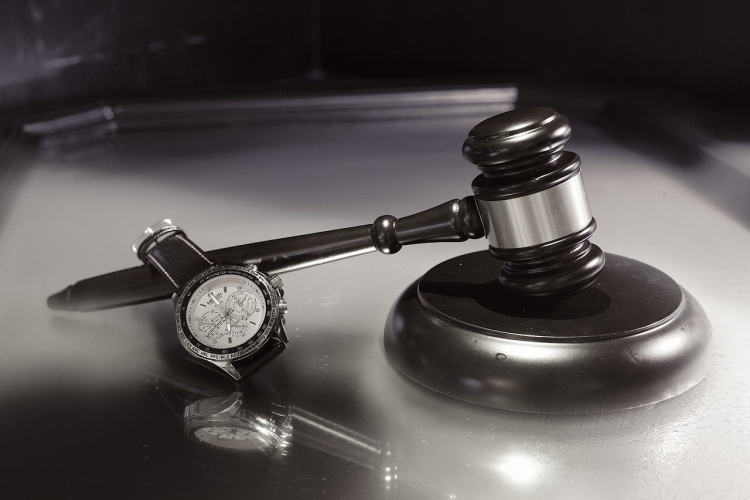Does Every Defendant Get a Bail Hearing?

Hollywood’s idea of bail goes like this: the suspect is dragged before a judge in a crowded courtroom where the prosecutor requests that she be held without bail and her lawyer asks that she be released without conditions. The judge then makes some pithy remark and sets bail at an amount that doesn’t please anyone. In reality, bail hearings are not nearly as common as popular media would have you believe. Read on to learn what a bail hearing is, why most people never have one and the role of the bail bond agent in all of this.
Why do Some Suspects Get a Bail Hearing?
Many people arrested in Broomfield County or Adams County are taken to jail where they’re given a court date and released on their own recognizance. Many others have their bail determined by a preset “bail schedule” that details exactly how much bail should be charged for various offenses. It’s then up to the suspect to either post the bail amount themselves or call a bail bonding company.
In some cases, however, suspects are held at the jail to await a bail hearing before a judge or magistrate. The following are the most common reasons people are held for a bail hearing:
- The suspect may be accused of a particularly heinous crime.
- The suspect may be a repeat offender.
- The suspect may have a history of jumping bail.
- The suspect may be accused of committing a crime while already out on bail.
- The suspect’s attorney may want to argue for lower (or no) bail.
When Does the Bail Hearing Take Place?
Colorado law states that a bail hearing must take place within 48 hours of a person being arrested. If, however, the arrest took place on a Friday evening or right before a state or federal holiday the waiting period may be extended until the courts are scheduled to reopen.
What Happens During a Bail Hearing?
The defendant, their lawyer, the prosecutor and judge or magistrate are the key players at a bail hearing. (Although it might seem the bail bond agent should also be present, that’s not the case. They don’t enter the picture until a bail amount has been set and the defendant – or someone representing the defendant – contacts them.)
The defendant’s lawyer will argue in favor of lower bail for their client, while the prosecutor will typically argue for higher bail or for the defendant to be held without bail. Though there are cases where the prosecutor may not object to lowering bail.
Factors Weighed by the Judge or Magistrate
After the defense makes their case and the prosecution counters the judge or magistrate will weigh a variety of factors before reaching a decision. Those factors include:
- The crime the suspect is accused of committing
- The suspect’s criminal history (or lack thereof)
- The suspect’s finances and employment status
- The suspect’s family situation (do they have kids depending on them)
- The suspect’s ties with the community (indicates whether they are likely to flee)
Serious offenses are likely to result in high bail amounts. Alleged offenses against vulnerable groups or alleged terrorist acts are likely to result in bail not being granted. Also, if the suspect has a long criminal record that includes violent crime they are less likely to be granted bail.
So Let’s Say a Person is Released on Bail. What Then?
If the bail hearing results in a suspect’s bail request being granted and the bail bonding company helps secure their release, the suspect will need to adhere to certain conditions or they run the risk of their bail being revoked. Those conditions may include any of the following:
- That they abstain from alcohol and drugs
- That they not travel outside the court’s jurisdiction
- That they wear a monitoring bracelet
- That they surrender their passport
- That they go to work every day
- That they surrender any firearms until their case is concluded
- That they stay a minimum distance from victims and witnesses
Is the Decision of the Judge or Magistrate Final?
For all practical purposes, the answer is “Yes”. However, both parties (defense and state) have the option of appealing a decision made during a bail hearing. The thing is any appeal on the part of the defense must be constrained to whether the judge acted properly during the hearing or whether the designated bail amount violated the 8th amendment of the constitution.
Truth be told, appellate courts are loath to second-guess judges and magistrates in bail hearing decisions. So the chances of having a decision overturned based on alleged judicial misconduct are slim at best. Perhaps a defendant’s best chance of overturning a bail hearing decision is to demonstrate that the amount violates the constitution’s prohibition on excessive bail. But even then it will be a hard sell and the appeal will likely stand little chance of success.
If You Need Affordable Bail Bonds Contact Urban Bail Bonds
To answer the question posed in the title of this article (“Does Everyone Get a Bail Hearing?”) the answer is “No”. Only a small percentage of people who’ve been arrested ever wind up in court for a bail hearing. When such a hearing does occur it’s typically because the alleged crime is particularly serious, or because the defense wants to have the bail amount reduced.
If you have been arrested and need 24-hour bail bonds in Broomfield or nearby Colorado cities, our licensed bondsmen can help. Get in touch with the experienced team at Urban Bail Bonds by calling (303) 736-2275.
